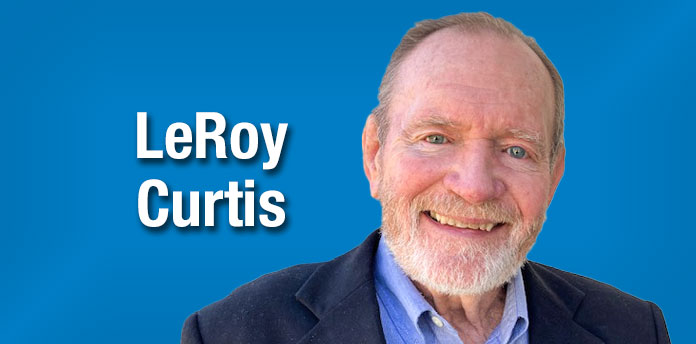Have you ever noticed, more often than not, that if you’d waited just a few minutes more before you panicked, whatever you were worried about would have self-corrected? Instead, you overreacted and ended up with a bigger problem than the one you had previously worried about having.
Thankfully, the large majority of my premature reactions were minor enough to laugh about rather than cry over. A few have cost me dearly. I don’t even want to think about those, much less laugh about them!
Overreaction is, for certain, a fundamental problem for the whole world. It could, in fact, be the single most dangerous factor behind all the woes of mankind. Anxieties create misunderstandings that lead to disputes which cause fights and end up in wars.
My major in college was history, military history primarily. I found that very theme to be a reoccurring fact going back millennia in time. Had patience, together with cooler heads and warmer hearts reigned in the moment of conflict, a different and much better outcome could have resulted. That is true in this present global political climate.
But, scaling back just a tad from the portals of apocalypse, let’s just keep this discussion on a personal level. Most of our wars and rumors of wars are very personal matters, anyway. The majority of our living takes place inside our own head and it’s our imagination that can take us to the brink of disaster far too prematurely. Anxiety is the culprit. We simply worry too much about too many things, and I am as guilty as the next guy.
We all know that worrying is counterproductive, and even unhealthy for us. Yet, we cannot seem to escape our addiction to it. As my son-in-law often says through his tongue-in-cheek, “Things never are as bad as you wanted them to be.” That would be funny if it were not so true.
Why do we worry so much about stuff we can’t do the first thing to fix? Why is the sky blue? Maybe there is a scientific reason, but we wouldn’t understand it even if there were. The real question is what do we do about it?
I guess we could see a psychologist and get counseling. In all seriousness, this is too often necessary. Worry can lead to mental illness. Thank God for those who make a career helping people with their anxiety issues.
I could say the same about pastors who patiently listen to members of their flock lay out their fears and frustrations in hopes of finding relief. Good friends are another source of help when we find ourselves unusually troubled and need an extra measure of encouragement.
Often the answer is found right there somewhere inside that dusty book on the shelf we call The Holy Bible. God’s Word has a lot to say about anxiety. Philippians 4:6-7, for instance, says, “Do not be anxious about anything, but in everything, by prayer and petition, with thanksgiving, present your requests to God. And the peace of God, which transcends all understanding, will guard your hearts and your minds in Christ Jesus.” Wow!
In other words, the antidote to anxiety is prayer, asking God to help you, and in full and thankful expectation that He will.
I want to carefully note that the resulting help may not always be a positive answer to a particular request you might make. Mature believers should understand that prayer is better used for finding God’s will than informing Him of our own.
We always pray with the highest hopes and in faith that our requests will (eventually) be granted. But the amazing promise is much better than that. The supernatural peace of God will guard our hearts and minds in Christ Jesus, and His peace will give rest to our feelings and thoughts. We can face whatever is next in full faith and confidence that we are in good hands.
Recently, I was reflecting on some current difficult personal issues when God reminded me of an incident that I experienced early in my missionary life in Kenya. I was hopelessly lost and alone on an unpaved back road somewhere in the bush, and nightfall was fast approaching. I was worried. I finally came upon a lone police officer who actually understood my English. I asked him if the road I was on led to my home in Kitale, or to Kapenguria, a town much further north.
His answer was simply, “Yes.” I was already anxious, exhausted, and frustrated.
I almost shouted at him, “So, which place does this road go?”
He seemed to be amused at my impatience. His answer was simply profound, “It depends on which way you turn at the next intersection.”
I was embarrassed but grateful. I remember later thinking that just maybe the officer was really an angel. Anyway, his response stuck with me over the years. Maybe it helped me understand my cultural shortcomings when trying to relate to people who don’t needlessly worry about the same stuff I do.
Being lost on the road is a much bigger deal to an American than it is to an African. “Hakuna Matata” (no worries), is not just a song or a mere slogan in Kenya. It is a worldview which reflects a lifestyle that patiently absorbs the uncertainties of life, the kind that drives us Wazungu (white people) crazy.
Kenyans learn at an early age to take whatever circumstances come their way without a lot of fruitless analysis or angst. They simply deal with problems as best they can when they have to. They are also much more apt to pray.
For us prayer might be our last resort; for most of them it is their only resort and knowing that helps them do what they have to in order to survive and to be content, if not happy.
The next intersection is always coming. I will try hard not to worry. I will pray and trust God, that He will show me the way when I really, truly need to know. To quote one of my favorite philosophers, Bob Marley, “Every little thing is gonna’ be all right.” Amen to that.
[LeRoy Curtis is a graduate of the University of North Carolina, Chapel Hill, and Asbury Theological Seminary. He served four years as a U.S. Naval Officer after which he became a pastor, Bible professor, educator, author, and missionary living in E. Africa for eight years where he and his wife developed a curriculum of biblical studies for untrained pastors in rural Kenya. His passion for training young church leaders takes him to various parts of the U.S., Latin America, and Africa. He and Judy are currently residing in Carrollton, Georgia.]











Leave a Comment
You must be logged in to post a comment.